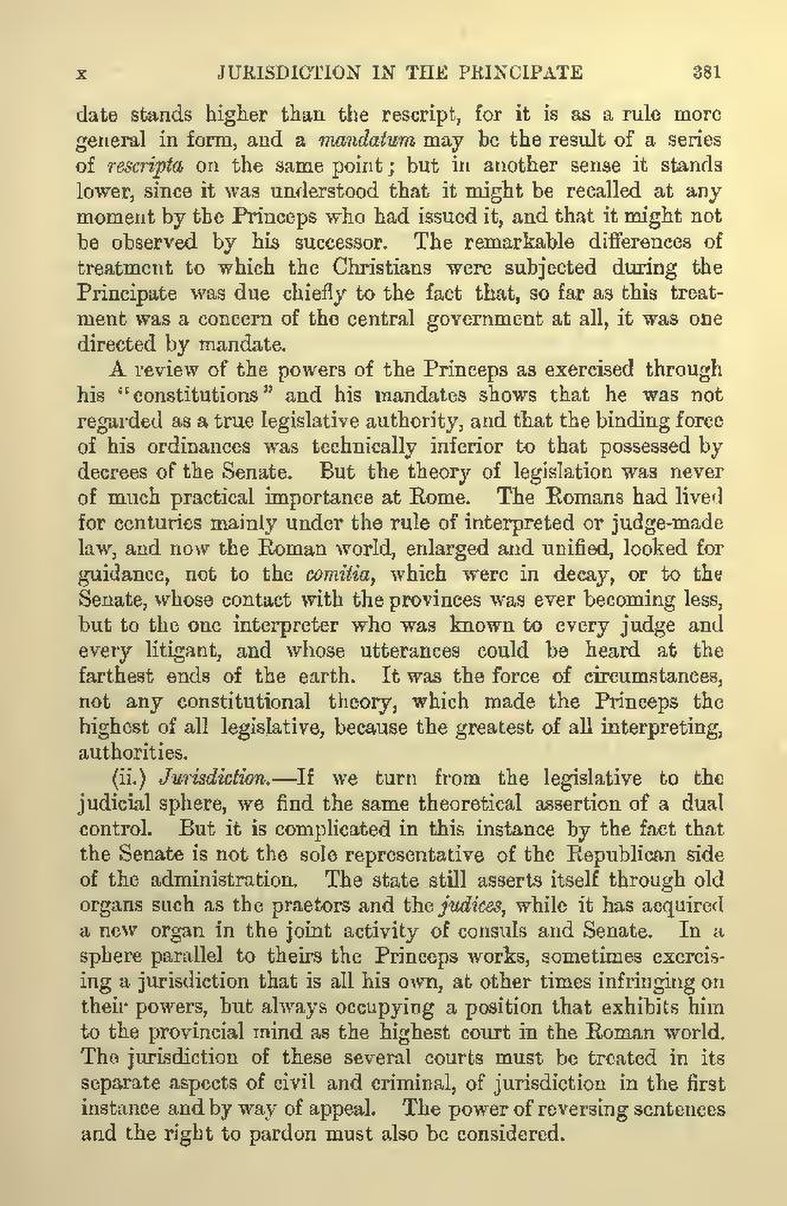date stands higher than the rescript, for it is as a rule more general in form, and a mandatum may be the result of a series of rescripta on the same point; but in another sense it stands lower, since it was understood that it might be recalled at any moment by the Princeps who had issued it, and that it might not be observed by his successor. The remarkable differences of treatment to which the Christians were subjected during the Principate was due chiefly to the fact that, so far as this treatment was a concern of the central government at all, it was one directed by mandate.
A review of the powers of the Princeps as exercised through his "constitutions" and his mandates shows that he was not regarded as a true legislative authority, and that the binding force of his ordinances was technically inferior to that possessed by decrees of the Senate. But the theory of legislation was never of much practical importance at Rome. The Romans had lived for centuries mainly under the rule of interpreted or judge-made law, and now the Roman world, enlarged and unified, looked for guidance, not to the comitia, which were in decay, or to the Senate, whose contact with the provinces was ever becoming less, but to the one interpreter who was known to every judge and every litigant, and whose utterances could be heard at the farthest ends of the earth. It was the force of circumstances, not any constitutional theory, which made the Princeps the highest of all legislative, because the greatest of all interpreting, authorities.
(ii.) Jurisdiction.—If we turn from the legislative to the judicial sphere, we find the same theoretical assertion of a dual control. But it is complicated in this instance by the fact that the Senate is not the sole representative of the Republican side of the administration. The state still asserts itself through old organs such as the praetors and the judices, while it has acquired a new organ in the joint activity of consuls and Senate. In a sphere parallel to theirs the Princeps works, sometimes exercising a jurisdiction that is all his own, at other times infringing on their powers, but always occupying a position that exhibits him to the provincial mind as the highest court in the Roman world. The jurisdiction of these several courts must be treated in its separate aspects of civil and criminal, of jurisdiction in the first instance and by way of appeal. The power of reversing sentences and the right to pardon must also be considered.
